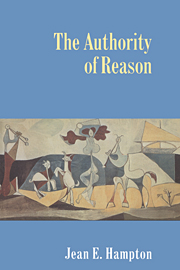Hobbes and the Social Contract Tradition
This major study of Hobbes' political philosophy draws on recent developments in game and decision theory to explore whether the thrust of the argument in Leviathan, that it is in the interests of the people to create a ruler with absolute power, can be shown to be cogent. Professor Hampton has written a book of vital importance to political philosophers, political and social scientists, and intellectual historians.
Reviews & endorsements
'Hampton's ingenious argument … is the best that has yet been advanced to explain how Hobbesian persons could institute a sovereign.' David Gauthier, Philosophy and Public Affairs
Product details
October 1988Paperback
9780521368278
316 pages
229 × 152 × 18 mm
0.441kg
Available
Table of Contents
- Acknowledgments
- A note on texts and references
- Introduction
- 1. 'Of Man': the foundation of Hobbe's political argument
- 2. What is the cause of conflict in the state of nature?
- 3. The shortsightedness account of conflict and the laws of nature
- 4. The argument of absolute sovereignty
- 5. Authorizing the sovereign
- 6. Hobbe's social contract
- 7. The failure of Hobbe's social contract argument
- 8. Can Hobbe's argument be salvaged?
- 9. How the traditional social contract argument works
- Bibliography
- Index.












